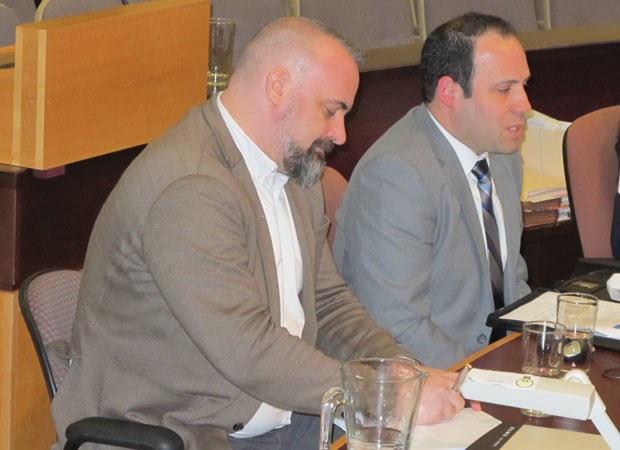It could be several more years before some form of mobility pricing will be in place in the Lower Mainland.
That was one of the messages two members of the Mobility Pricing Independent Commission brought to Delta council last week.
Vincent Gonsalves, manager of communications and engagement, and executive director Daniel Firth appeared as a delegation to update civic politicians on the status of the commission’s work.
“It has now progressed where we are looking at specific preferences as well as concerns from stakeholders and members of the public,” said Gonsalves.
Tasked with making recommendations to TransLink’s Mayors’ Council and board of directors, the Mobility Pricing Independent Commission is engaging with the public and various stakeholders to research a number of decongestion charging examples and how they could work in Metro Vancouver.
So-called “congestion point charges” and “distant-based charges” are two options the commission is considering to ease congestion as well as raise revenue for transportation infrastructure.
One possibility is a fee to enter areas like Downtown Vancouver, similar to charges imposed in some European cities. Drivers could also be charged for passing through a “hotspot” like the George Massey Tunnel, which has already been listed as a high congestion point. How much that fee would cost still hasn’t been worked out.
The charge may be just enough to prompt behaviour changes from some vehicle users with access to alternative modes of transportation, which in turn would ease congestion.
The commission has been gathering feedback through workshops and an online engagement. Another report will head to the Mayors’ Council in April for its review and direction.
Coun. Sylvia Bishop said she understands the challenges TransLink faces to raise funds to improve transit and that this review is one way to address that, but wondered why there was not more being done to address transit options.
“I’m sure there are many residents in South Delta, North Delta and South Surrey as well who would welcome different ways to get into town if they were available, but they are not, so they take their car,” she said. “Then I look at the proposed charges that will levied and that money will all go into the downtown and everyone south of the Fraser is going to be short-changed because there are not enough of us to warrant better transit.”
Firth countered that you won’t hear any arguments from the commission that there needs to be better transit in the region.
“Again we have heard a lot from the stakeholders how the money will be used and that it will be used cost-effectively,” he said.
“At the moment the intention is this funding [for transit] will be in phase three of the Mayors’ Council plan, which would see improved bus service throughout the region. But your points are well taken and if you are raising money throughout the whole region, it needs to be spread out fairly throughout the region.”



